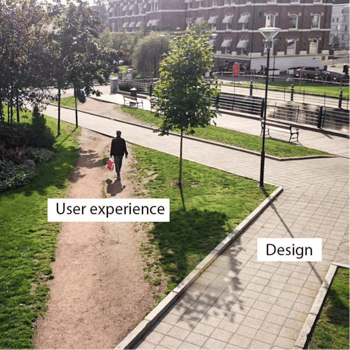 It amazes me how often the topic of CRM adoption is raised. I remember when I first got involved in sales and programs like Act! For DOS (remember DOS) was the focalpoint. It seems that for as long as there have been computers, the topic of sales force automation and CRM adoption have been top issues for sales teams.
It amazes me how often the topic of CRM adoption is raised. I remember when I first got involved in sales and programs like Act! For DOS (remember DOS) was the focalpoint. It seems that for as long as there have been computers, the topic of sales force automation and CRM adoption have been top issues for sales teams.
The sad part is that many of the issues and obstacles companies face today are basically the same as what they faced 36 years ago. The good news is that a whole new breed of CRMs have been developed and their growth demonstrates the pain that still exists surrounding CRM.
Be careful though. No matter how much you like a CRM, remember that it is just a tool and its effectiveness will depend far more on how you deploy it than how good the tool actually is.
If increasing efficiencies and velocity are important to you, then you need to have a strong CRM platform. To do that, be sure you avoid the five biggest reasons that salespeople don’t use CRM effectively.
1. Not designed for the salesperson

The first problem with CRM adoption is that the vast majority of systems aren’t actually designed for salespeople or to support sales acceleration. They’re built for sales management and for finance, and designed for compliance and micro-management.
Good salespeople are a unique breed who must deal with highly variant situations. Regardless of training, comp plans or oversight, they’re going to naturally focus on what enables them to do their job quicker and easier. When you put systems in front of them that they don’t believe aid in their job, they’ll ignore or passive-aggressively comply.
The goal should not be “CRM adoption.” The goal should be related to revenue targets, speed, velocity, etc., and CRM adoption should be a means to achieve an important result. It’s important to look at your CRM through the holistic prism of your revenue generation and demand generation approaches. As this image highlights, if you’re having a problem with CRM adoption, it’s a pretty good bet that the real issue is alignment.
2. Not aligned with the (real) sales process
The biggest danger I’ve seen with CRM is that it’s very easy to create an illusion of certainty. CRM takes complicated scenarios and puts them into an orderly view. There are 37 opportunities in the pipeline. The probability adjusted pipeline is $3.3 million. Seventeen deals are expected to close in the next 60 days.
It sounds (and feels) so good and clear. The problem is that it is far too often not aligned with reality. I’ve lost count of the number of CRM assessments I’ve completed where the pipeline stages are clearly laid out, but salespeople follow a completely different path. Or where the CRM collects certain data, but that data is never used to help salespeople close business faster or at better margins.
If you don’t have a well thought out and disciplined sales process that is truly aligned to effective selling, you can’t expect salespeople to adopt the technology.
3. Too complex or cumbersome
When I consult with companies on CRM implementation, one of the most common questions I’m asked is, “What information should we track?” My answer is always the same: “As little as is necessary to achieve your objectives.”
It’s really easy to try to track everything with CRM, or to create really elegant complex approaches and processes. Don’t. Keep your CRM as simple as you possibly can.
4. Takes too much time to use
I’ve used, and hated, CRM probably for as long as anybody out there (how many people do you know that used Act! For Dos?). I’ve always loved the promise of CRM, but even though I was the one insisting my sales team used the CRM I constantly found myself struggling to comply with the very things I was demanding.
The reason was simple. Using the CRM was a pain in the ass. It took too much time. It didn’t work the way I did. Bottom line was that I had to think to use the CRM, and frankly all my thinking capacity was used up trying to manage opportunities.
My advice to executives is don’t ask your sales team to do things that you’re not doing. So be sure you’re using the CRM in sales efforts as well. Then ask yourself, does using the CRM make your life easier, or does it make selling more difficult.
5. Big brother
Lastly, I’ve lost count of how many times CRM has been used like a whip to beat on salespeople. If you’re using the CRM to spy on your salespeople, don’t expect that to provide the transparency you’re looking for. Mike Weinberg has a great chapter about this in his book Sales Management. Simplified.
The bottom line is that if you want your sales team to use CRM the way you want, you must be able to answer “yes” to these three questions:
- Does it make a salesperson’s job easier?
- Is it aligned with the way we sell and manage leads and opportunities?
- Do we regularly use the data kept in the CRM to help salespeople do their jobs better?

 Doug Davidoff
Doug Davidoff